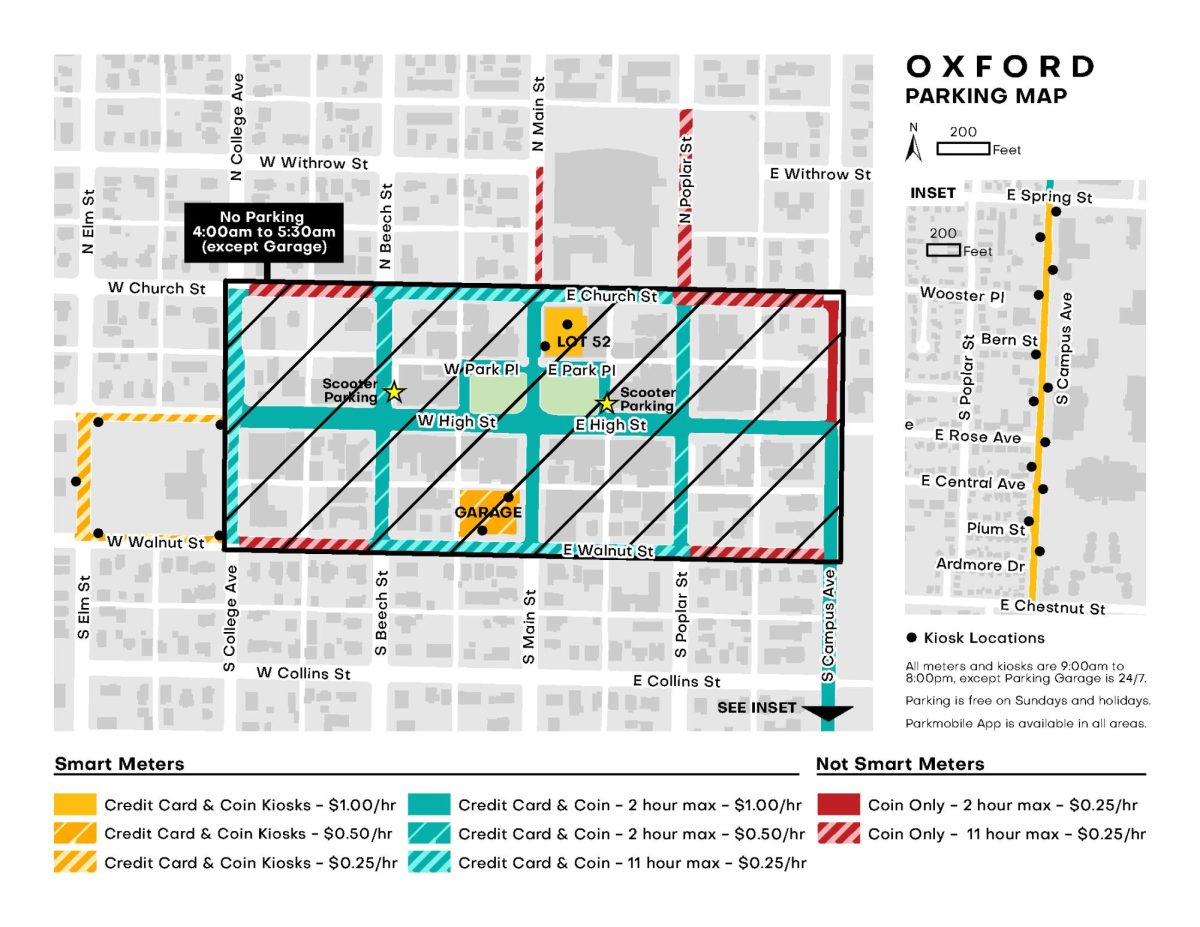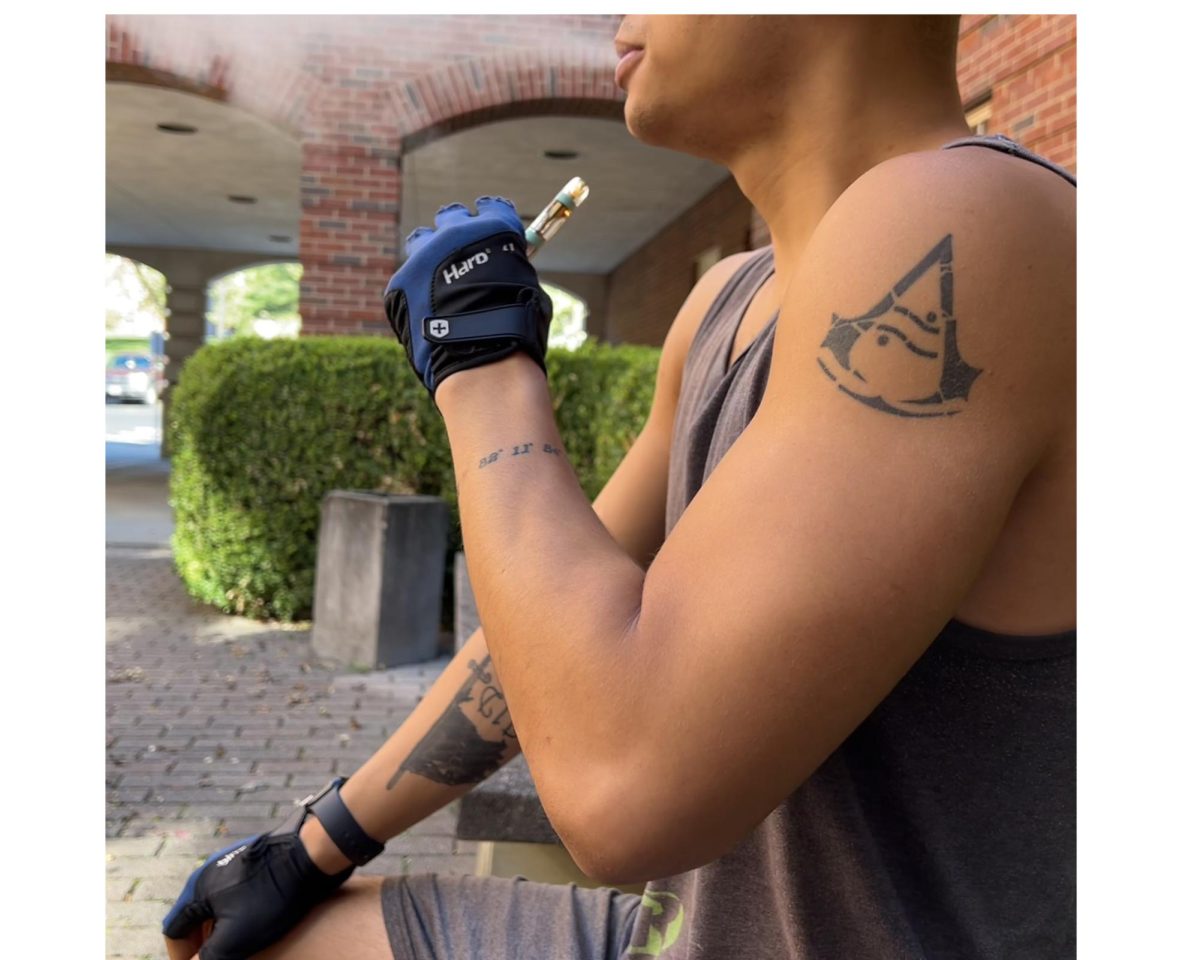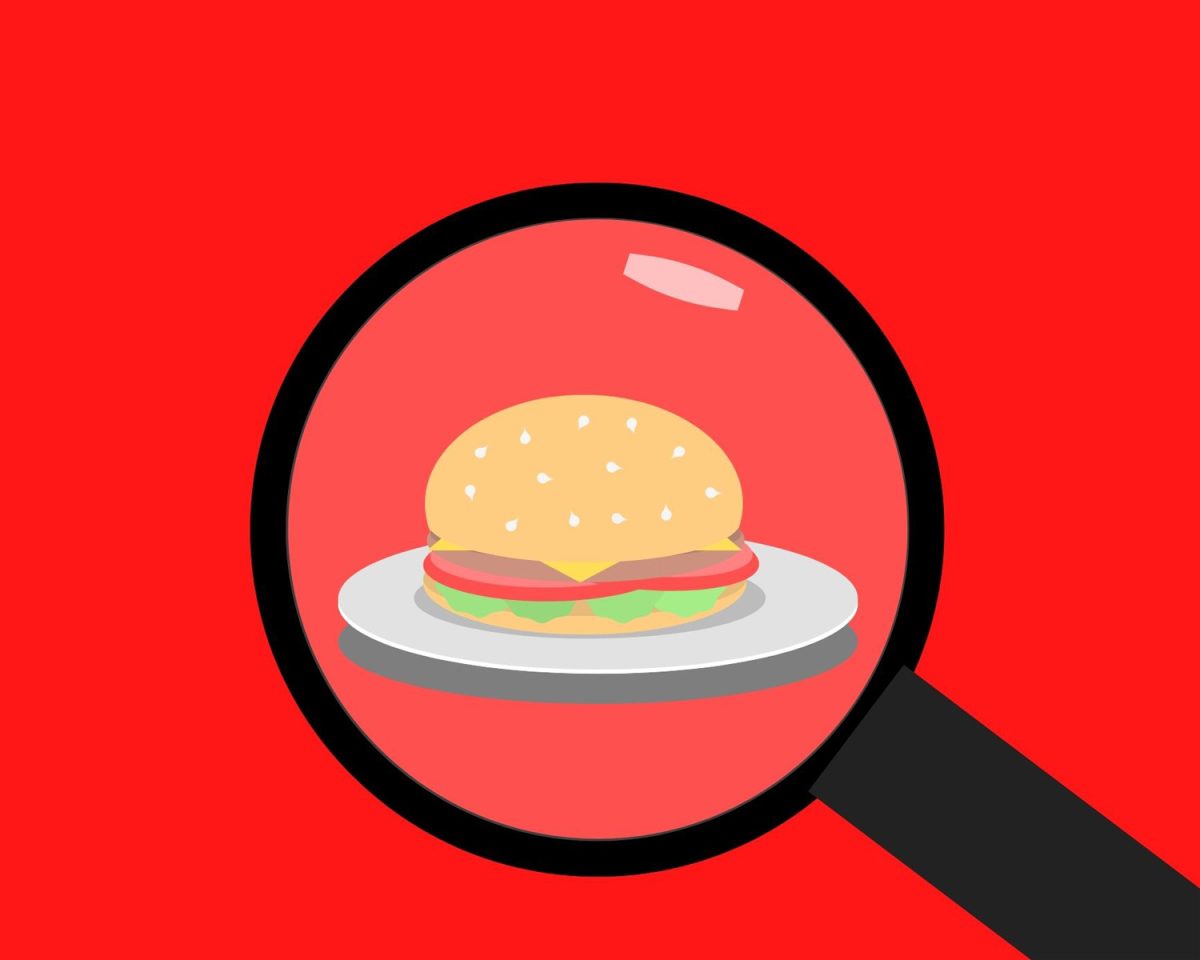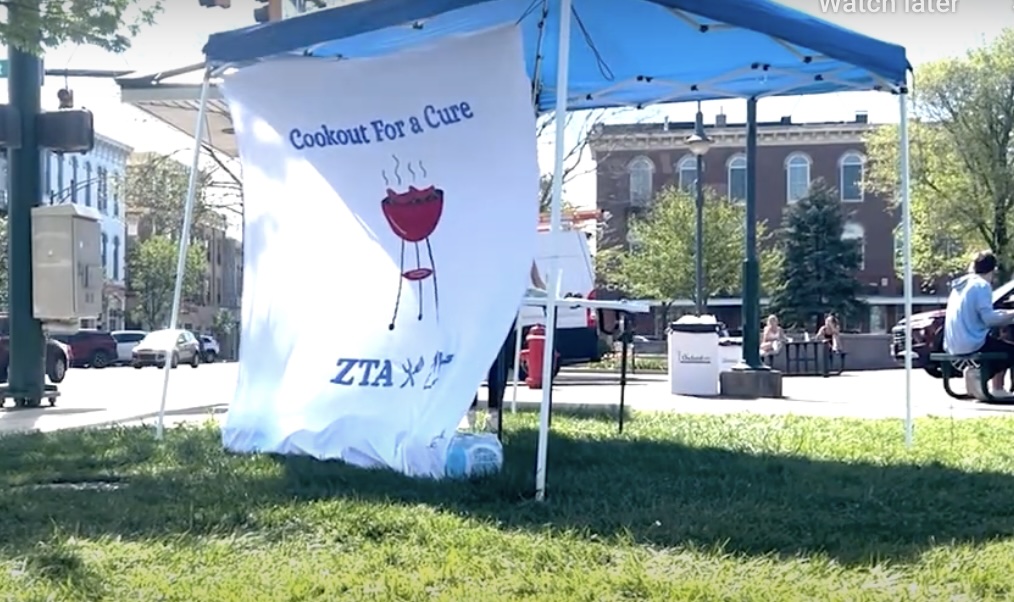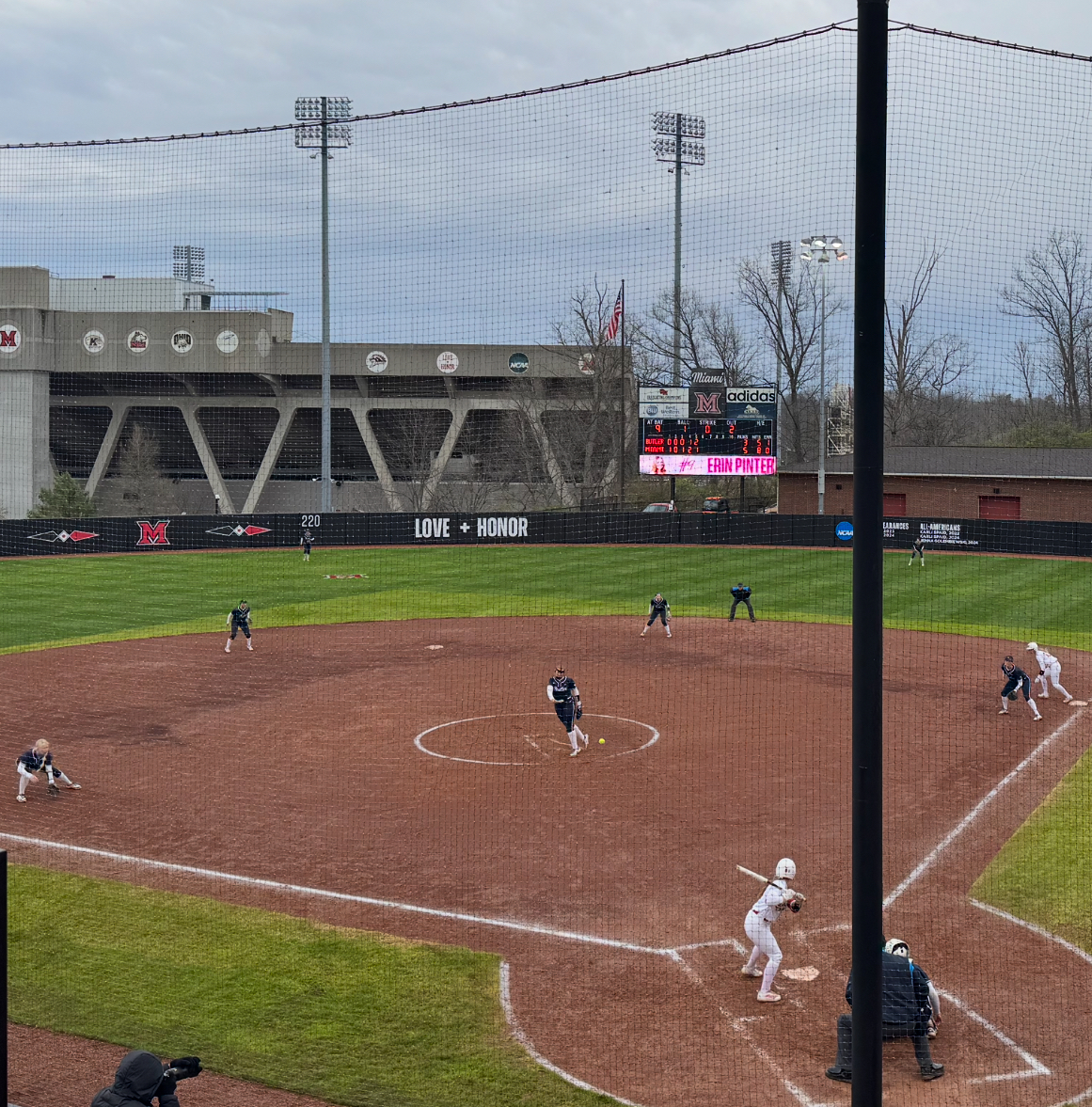With two Miami University students under close observation because they may have been in contact with the coronavirus, university and health officials are taking precautions to help prevent the spread of both the disease and fear.
On Monday, Jan. 27, a Miami student complaining of bronchial discomfort went to the university health center. The student was accompanied by a friend, also a student. Both had just returned to Oxford after spending winter break in China.
Because of the outbreak of coronavirus in China, samples were taken from both students and sent to the Centers for Disease Control and Prevention (CDC) for analysis. Results of those tests are expected by the end of the week, according to the university. In the meantime, the two students were asked to isolate themselves in their off-campus apartment as a precaution against the possibility of spreading the virus.
“University officials are monitoring their conditions and the university is providing their meals,” said Miami spokesperson Claire Wagner. The isolation is voluntary. “The students are also concerned about not making others sick,” Wagner said. As of Thursday, the isolated students were reportedly doing well and had not developed more serious symptoms, according to the university. University and health officials said the identities and location of the two students are not being revealed to protect their privacy.
Miami has been providing near-daily email updates about the situation to everyone at the university. On Tuesday, a press conference was held on campus by officials from Miami and the Ohio Department of Health. Symptoms of coronavirus “look a lot like everything else we are catching right now,” such as colds, flu and other respiratory problems, Dr. Amy Acton of the ODH, said. Normal hygiene – frequent handwashing and staying home if you are sick are the only precautions really needed at this time, she said. Acton emphasized at the press conference that the risk of a widespread outbreak is considered low.
Unwanted fear bigger concern than virus
Acton said an outbreak of unwarranted fear was much more likely to be a problem than an outbreak of the virus. She said local residents are much more likely to catch a cold or the flu than the coronavirus. As of Thursday, no confirmed cases of coronavirus have been confirmed in Ohio.
Yet some people were wearing face masks, and several university and local events have been canceled by organizers concerned about a possible spread of the virus.
On Tuesday and Wednesday, Miami basketball games were postponed at the request of their opponents.
According to Miami, Central Michigan’s men’s basketball team postponed its Tuesday matchup against the RedHawks while the Western Michigan women’s team opted to play its scheduled Wednesday game in Oxford at a later date.
On Wednesday, Miami announced that these games have been rescheduled. The women’s team will play on Monday, Feb. 3 at Millett Hall, while the men are set to play Feb. 27.
Some local stores were reporting runs on face masks, but Acton said she did not recommend widespread use of such masks.
On Tuesday, Shaoyang Zhou, a senior economics major from Wuhan, China, appeared on the Miami campus wearing a full-body isolation suit. Wuhan has been identified as the site of the initial outbreak of the virus. Zhou had not gone back to China over winter break and had not been exposed, but he said he was concerned about family and friends there. He said in the neighborhood where his parents live, a patient already had been confirmed.
Zhou said he donned the body suit to raise attention to the fact it’s becoming hard to find disposable masks in Oxford.
At the Annex apartment complex, 1562 Magnolia Dr., welcome-back social events this week had been cancelled because of concerns about the virus. Management sent an email over the weekend not only letting its residents know the events would be cancelled, but also to remind them to sanitize and wash their hands. Additionally, they said that the maintenance workers would come into the apartments wearing masks as a precaution.
Drivers of the shuttle buses that run between the Annex and campus also have been wearing masks this week. One driver, who would identify herself only as Anna, has been carrying around disinfectant spray. “I usually spray all the railings and the back area of the bus,” she said. “I try to do it every 20 minutes.”
Amid rumors that the two isolated students lived at Annex, Kelsey Goldkamp, general manager of the Annex, sent an email to residents on Jan. 29 to say the isolated students are not residents of that apartment complex. “We are aware of a rumor or concern that these cases were at Annex, however this is not the case,” she said. “We have confirmed from public authorities that the two individuals being tested are at a different off-campus community, not Annex,” the email said.
Other off-campus apartment complexes are taking precautions as well. At The Miami Preserve, 271 Reagan Place, management tried to get face masks for its residents, but was unable to find any. Additionally, they added hand sanitizer dispensers at all the front desks.
Students worried about situation at home
Zijia Kang, a Chinese student at Miami who didn’t go back to China, said she is increasingly concerned about what is happening back home. “At that time (of the initial reports), I didn’t pay much attention to it, thinking it was only a small spread of disease in Wuhan. But in the course of chatting with my friends back home, I felt their anxiety, which made me realize the seriousness of the virus.”
Kang said, “Americans know relatively little about pneumonia in China, and most people have not experienced or even heard of SARS in 2003, Americans do not take this pneumonia as seriously as the Chinese.”
Zhenshun Cheng, director of the department of respiratory medicine at Wuhan University School of Medicine, said at a press conference on Jan. 29 that there is no specific antiviral drug for the treatment of the coronavirus.
The virus began to attract attention in December. On Dec. 31, 2019, several cases of pneumonia found in Wuhan, Hubei province, China. The virus in those cases was labeled “novel” as it was not compatible with any other virus on record.
Some Canadian and U.S. airlines announced Tuesday they were canceling flights to China because of a new outbreak of the coronavirus. According to the Air Traffic Management Bureau of Civil Aviation Administration of China, the number of flights at Beijing capital airport has been declining. In total, 546 flights were canceled on Jan. 30.
Other international businesses, including Ikea and Starbucks, have announced they are curtailing or suspending business in China because of the virus.
Virus had not been seen before
After a week’s investigation, Chinese authorities confirmed the virus was a new strain of coronavirus. According to the CDC, coronaviruses are a large family of viruses that are carried by many different species of animals, including camels, cattle, cats and bats. Rarely, do the viruses infect people and then spread like MERS and SARS.
As of 10 a.m., Jan. 30, 2020, 8,149 cases have been confirmed and at least 171 people have died in China. More than 100 confirmed cases have been confirmed outside mainland China, including five cases in the U.S. according to the Ifeng News.
The world health organization (WHO) evaluated the risk of the novel coronavirus as high globally, very high in China, and low in the United States.
The CDC reported that 33 out of 585 environmental samples from South China seafood markets contained coronavirus. The virus was successfully isolated from environmental samples, suggesting the virus originated from wild animal trade in South China seafood markets.
The Chinese government has tried several tactics to reduce the spread of the virus. On Jan. 23, the Chinese central government imposed a lockdown in Wuhan in an effort to prevent the spread.
China’s National Health Commission and National Administration of Traditional Chinese Medicine published “the pneumonia diagnosis and treatment plan for the novel coronavirus infection (version 4),” stating that the incubation period of this virus is generally 3-7 days, with a maximum of 14 days.
According to CDC’s press conference on Jan.28, the virus currently has a fatality rate of about 2 to 4 percent, which is subject to change. People infected with the virus develop varying degrees of symptoms, ranging from a fever or mild cough, pneumonia or even death. The very young, the elderly and those with compromised immune systems are considered the most at risk.
The CDC suggested that if people feel sick, it’s important to stay home and rest. Seek medical attention if you come into contact with a potential source of infection or have symptoms such as fever, cough or difficulty breathing – all of which could be symptoms of much more common illnesses. Be sure to provide full information to the health care providers you speak to ensure they are taking adequate precautions.





